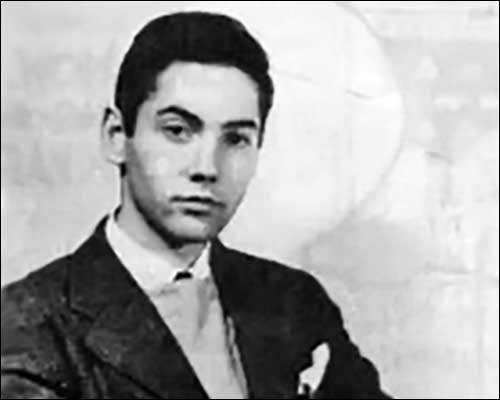![]()
J. Robert Oppenheimer is back in the news with the movie “Oppenheimer” hitting screens across the country. As a movie, I give it “thumbs up”. It was well-scripted, acted, and moved at a captivating pace. Hats off to Christopher Nolan.
As history, I have my doubts.
Oppenheimer’s place in the period before, during, and after World War II is a much more contentious topic and should be. Was he a man of dubious loyalty, maybe even going so far as to engage in espionage? More interestingly, could his philosophical sympathies cloud his judgment in managing Los Alamos? These questions cannot be answered in a movie. Sympathy for the man abounds, possibly richly deserved, but some aspects of the real story are missing. One thing is glaringly clear: nothing, absolutely nothing was mentioned, or in any way referenced, of the Venona project and its WWII decrypts of Soviet communications from the US to Moscow, or the confirmatory information gleaned from the briefly opened Soviet archives after the downfall of the Soviet regime in 1991.

PBS added to the Oppenheimer lore with a recent American Experience documentary, “The Trials of J. Robert Oppenheimer”, with the same blank spots as the movie. Number one, the “trial” wasn’t a trial. It was a panel to determine whether to pull Oppenheimer’s security clearance. Step back one moment from the Hollywood-made aura about the man, however, and look at the facts. Fact number one, no evidence has come to light of Oppenheimer’s involvement in espionage. So, as a matter of law and logic, the claim of alleged treason is simply a suspicion at best. On the other hand, the raw insights gleaned from Venona and Soviet archives presents a more complicated picture.
![]()
For a clearer assessment of the period, PBS ironically came to the rescue some years back with Nova’s “Secrets, Lies, and Atomic Spies” which was primarily based on the historical work of John Haynes and Harvey Klehr (watch it below). The documentary and the book, “Venona: Decoding Soviet Espionage in America”, point to serious Soviet penetration of the US government and the Manhattan Project. The movie mentions the espionage of Klaus Fuchs, but the reality is that the illicit activity didn’t end there.
![]()
![]()

Americans acting as Soviet agents were littered throughout Roosevelt’s administration. Lauchlin Currie, FDR’s chief economic adviser, Harry Dexter White, Assistant Secretary of the Treasury, Alger Hiss at the State Department, and a smattering of others in intelligence and federal law enforcement agencies were identified in Venona decrypts and later confirmed in Soviet archives as sources of America’s most important secrets. Some 300 Soviet cover names were identified in the decrypts with only about 100 attached to specific individuals. One of the unidentified was “Quantum”, and he was clearly somebody very, very important at Los Alamos.
The movie to its credit mentioned Klaus Fuchs, but there was more at Los Alamos. One such person was Theodore Hall and his friend and Harvard confidant, Saville Sax. Fuchs and Hall, independent of each other, provided sketches and descriptions to the Soviets of the plutonium bomb used on Nagasaki. Shortly after the successful Trinity test in July 1945, the Soviets and the head of their nuclear effort, Igor Kurchatov, had in their hands what we had achieved and how. Possibly this explains Stalin’s nonchalance when informed by Truman of this “super weapon” at Potsdam.


For me, the media productions unwittingly say more about the cultural milieu in our academic communities at that time as well as today. Already left leaning, the onset of the Depression confirmed Marx’s critique of capitalism for many academics, just like today’s Great neo-Marxist Awakening on our campuses. Is it all that surprising that Oppenheimer, like many others, was swimming with the subcultural current?
Who was “Quantum” and what role did Oppenheimer’s well-documented interaction with known communists and involvement in communist front activities have on his standing as a possible security risk? Suspicions were heightened, especially after the Venona decrypts were making the rounds through federal authorities.
Yet, until informed otherwise, sympathies doth not necessarily make a traitor. Oppenheimer was a man constantly torn between his deep-seated beliefs and his work. It was probably true for many at Los Alamos. Some let their sympathies get the better of them. Fuchs was captured at Heathrow airport trying to escape. Ted Hall escaped prosecution most likely due to the difficulty of using the decrypts in court and the reluctance of US authorities to expose our decrypting activities. Many others were fingered but avoided the bar of justice for the same reason.
It’s a story that at the very least would add greater depth to the movie, not only making a good movie but also better history.
Please watch “Secrets, Lies, and Atomic Spies”. You’ll find it interesting in light of the movie.
RogerG

